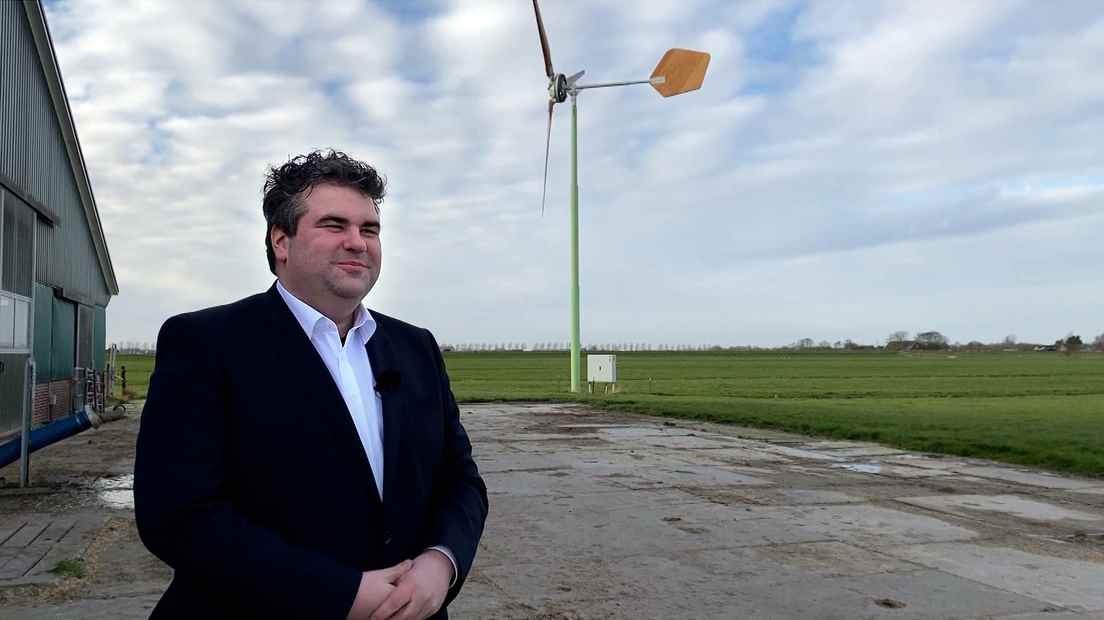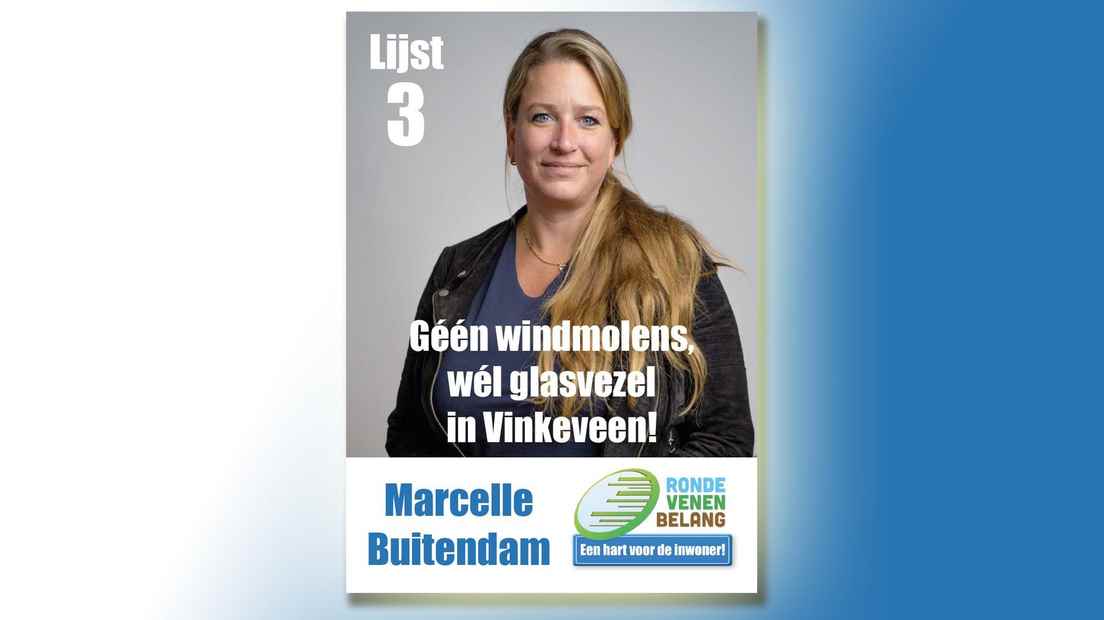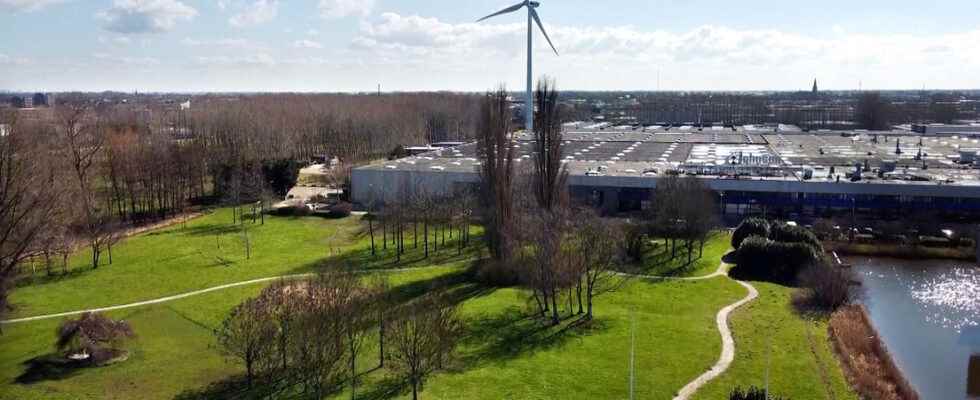DE ROUND VENEN – For months there were protests against windmills in De Ronde Venen. Protest signs along the road and posters on the windows: No windmills here. Thousands of signatures were collected. Young people who do want windmills also expressed themselves: “It’s about our future”.
What does De Ronde Venen want after ‘the year of the windmill’?
The year of the windmill
When Kiki Hagen left for the House of Representatives last year, D66 party leader Cees van Uden took over her position as alderman, including the Sustainability portfolio. Van Uden was immediately thrown in at the deep end. “On my first day as an alderman, I immediately had to defend a motion about sun and wind,” he says in a yard in Wilnis. Next to him is a small windmill spinning hard in the wind.
D66 is a strong supporter of wind energy and has remained so as the only coalition party. The D66 party leader finds it “obviously a pity” that wind turbines were already excluded at the initial stage. But, says Van Uden, “you can’t do anything without support”.

At times it was a headache file, the alderman agrees. Yet he looks positively back and forward. “We talked a lot about sustainability together,” he says. And although opinions differ, “everyone is convinced that we have to move forward”, says Van Uden. “And that’s just profit.”
From protest to politics
Marcelle Buitendam also talked a lot about wind energy last year. As spokesperson for the Red de Plassen foundation, she protested against the arrival of wind turbines. After 211 days of campaigning, the city council decided: there will be no wind turbines for the time being. The foundation responded “happy, relieved and grateful.”
During the campaign, Buitendam came into contact with the political party Ronde Venen Belang. “That quickly became a very nice collaboration,” says Buitendam at the Vinkeveense Plassen, where she was still standing with action signs last year. The collaboration went so well that Buitendam was asked to take a look at the political party.

Buitendam was already known for politics. She was previously on the Labor Party’s list of candidates for the elections to the House of Representatives. When she went to see Ronde Venen Belang, she was “immediately over”, she says. “It’s such a fun and diverse club of people.” Now she is number 3 on the list of Ronde Venen Belang. When she comes to the city council, she wants to continue to take care of the subject of sustainability.
Sunfields
Last year, the focus was on wind energy. Now is the time to talk about sun, says Van Uden. “As agreed in the previous plan, we will continue to develop solar fields.” The question is where they should go. Van Uden: “It makes sense that the places that are a bit more remote, such as along the A2. We will look at those places first.”
There is also the question of how many solar fields are needed. Last year it was calculated that around 100 hectares of solar fields would be needed to achieve the climate goals without wind turbines. That is equivalent to about 240 football fields. That seems a lot to Buitendam. “There are so many different numbers mentioned. More research is now needed into what is really needed, before an investment party starts earning a lot again at the expense of the residents.”
Ronde Venen Belang is not against ‘sun on land’, Buitendam explains, but “we also have to see whether it contributes to the design of the landscape.”
“Sober and realistic”
This approach fits in with Ronde Venen Belang’s climate policy, which the party itself calls “sober and realistic”. “The municipality has very ambitious climate plans,” Buitendam explains, “but we should not suffer from megalomania.”
“Let’s keep a realistic view and weigh the costs and benefits against each other,” Buitendam summarizes the climate policy. In concrete terms, this means that the party focuses on sun on the roof, wind on the roof and wind at sea. “There is also room for small initiatives that contribute to a better climate,” says Buitendam.
“Just a good idea”
Ronde Venen Belang stays against the wind on land, they also prefer not to see the small windmills up to 20 meters. As far as D66 is concerned, those smaller wind turbines do fit in well with climate policy. He points to the windmill behind him. “Very few people are bothered by that here in the countryside. So that’s just a good idea.”
As far as D66 is concerned, wind turbines cannot be ruled out in the longer term, but those plans will be shelved in the coming years. The party is now focusing on limiting energy consumption. “Insulating homes will be our focus in the coming years.”
More election news and other information can be found in our UKiest file.
Do you have a tip or comment? Send us your news or photo via whatsapp or email.
